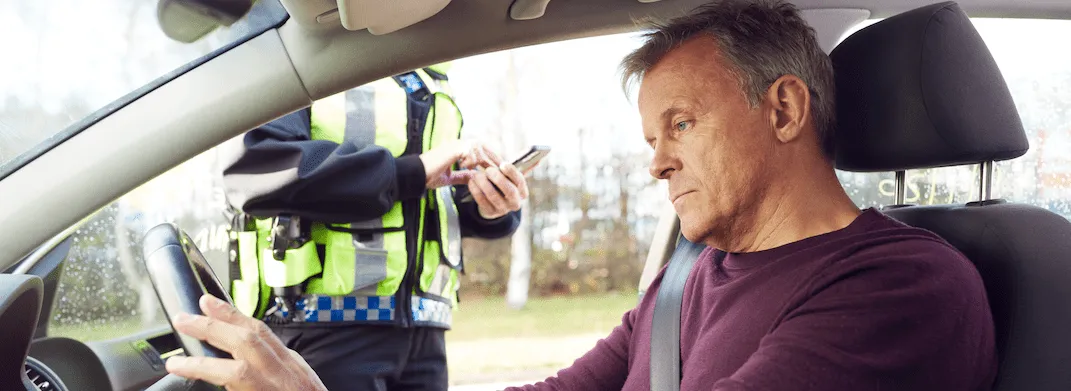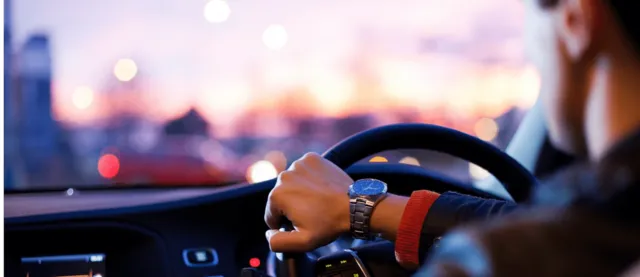Charged With Drug Driving? Get Free Legal Advice.
Have you been charged with drug driving? You are not alone as more people now are being charged with drug driving than drink driving. The best thing you can do is seek legal advice as soon as possible after your arrest. In this article, I will answer the most common questions about drug driving.
Content Overview
Drug driving – the law on legal & illegal drugs
What are the penalties for drug driving?
How can I help if you are charged with drug driving?
What do the police do when using a swab test kit for drug driving?
Can the police rely on a urine sample in a drug drive case?
Are all illegal drugs covered by the drug driving law?
What happens if you use drugs after you stop driving?
Will you be offered a Drug Awareness Course if you are convicted of drug driving?
Is passive smoking of cannabis a defence to a drug drive charge?
What factors make a drug drive conviction more serious?
Do the police have to prove that my driving was impaired to convict me of drug driving?
How long does cannabis stay in your system?
How long does cocaine stay in your system?
Drug driving – the law on legal & illegal drugs
You are guilty of drug driving when you drive or attempt to drive a vehicle on a road or other public place with specified drugs in your body above the limit prescribed for that drug (See section 4(1) RTA 1988). Not all car parks nor the grounds of all buildings are classed as public places so this point needs to be checked.
If you were using legal drugs either purchased over the counter or, on prescription I need to be sure that you have followed instructions given either by your doctor or the drug manufacturer in relation to usage & dosage.
There are a number of stages you will go through:
- Being stopped by the Police & asked to give a swab or have a sweat sample taken from your brow;
- If you fail the roadside test you will be arrested & taken to a Police station;
- A blood sample will be taken for analysis & you will be offered your own for independent analysis;
- When the sample has been analysed you will be charged & given a date to attend Court
What are the penalties for drug driving?
If you are convicted, you face a minimum driving ban of 12 months plus an unlimited fine & the possibility of a custodial sentence of up to 6 months. In calculating your fine, Magistrates will take account of your income and, whether or not you pleaded guilty at the first opportunity.
How can I help if you are charged with drug driving?
If the Police think they need to interview you, they will normally do this as soon as you are arrested. The key issue they must establish is that you were driving or, attempting to drive a vehicle at the relevant time.
If they did not interview you when you were arrested & want to do so later, I can arrange for you to be represented when the interview takes place.
Key issues I will then be looking at include:
- Do they have enough evidence to prove the case against you;
- Can the Police prove you have been driving;
- Have the Police made mistakes either when they arrested you or, in how they dealt with the blood sample;
- Did the Police warn you as to the risk of failing or refusing to provide a blood sample;
- Was the blood sample properly transported for analysis & properly tested without mishap, wrong labelling or other errors;
- If you followed instructions in relation to legal drugs you will have a defence;
- Are there what is known as “Special Reasons” to avoid your being banned from driving even though you are convicted
If the decision is that you plead guilty then I will need to fully understand your background & how the conviction will impact on you. I will then prepare a comprehensive mitigating argument designed to get you the best possible outcome at Court.
Supporting factors include:
- No previous convictions or no relevant/recent convictions;
- Genuine remorse;
- Good character and/or exemplary conduct;
- Age and/or lack of maturity where it affects your responsibility;
- You have a mental disorder or learning disability;
- You are a sole or primary carer for dependent relatives;
- You only drove for a very short distance;
- A genuine emergency is established
What do the Police do when using a swab test kit for drug driving?
The police must follow instructions for the kit they use & specifically:
- Not touch the sampling pads when removing the blue tester;
- Hold the kit bottom down whilst waiting;
- Wait 8 minutes;
- Rest it horizontally whilst analysing
Can the Police rely on a urine sample in a drug drive case?
No, as there are no limits prescribed for drugs detected in urine samples. However, they may consider charging you with 'driving while unfit due to drugs or alcohol', under Section 4 of the Road Traffic Act.
Are all illegal drugs covered by the drug driving law?
No, they are not. You must therefore be found to have traces of a drug in your system that is covered by the law.
What happens if you use drugs after you stop driving?
Currently, there is no science available to establish how much of any given drug is sufficient to put you over the limit for that drug.
So if you stop driving & then consume drugs in your possession before the Police ask you to take a swab test it will be difficult to establish how the analysis of your subsequent blood test should be assessed between drugs used before & after driving. This could give rise to a defence or Special Reasons argument.
Will you be offered a Drug Awareness Course if you are convicted of drug driving?
Currently, no such Course is available. If you are convicted of a drink drive offence there is an Alcohol Awareness Course you can attend if you meet the criteria & pay for it yourself. Attendance reduces your driving ban by 25%. It seems illogical that there is no equivalent Course for drug driving.
Is passive smoking of cannabis a defence to a drug drive charge?
No, it is not & the law specifically states this. It is possible that you could argue Special Reasons as to why despite having pleaded guilty, you should not be banned from driving. You are guilty if the result of your blood test shows a reading above the prescribed limit. You may then have to rely on evidence from those who were with you & who were using drugs.
What factors make a drug drive conviction more serious?
Magistrates will take into account a number of factors when considering how to sentence you for a drug driving offence. The presence of any of these are likely to see you get a driving ban longer than the minimum. These factors are:
- Evidence of another specified drug or of alcohol in the body
- Evidence of an unacceptable standard of driving
- Driving (or in charge of) an LGV, HGV or PSV
- Driving (or in charge of) a vehicle driven for hire or reward
For these purposes, cocaine and benzoylecgonine (BZE) are treated as one drug as they both occur in the body as a result of cocaine use rather than multiple drug use. Similarly, 6-Monoacteylmorphine and Morphine are treated as one drug as they both occur in the body as a result of heroin use. Finally, Diazepam and Temazepam are treated as one drug as they also both occur in the body as a result of Temazepam use.
Other aggravating factors in a drug drive case
- You have previous convictions having regard to: a) the nature of the offence to which the conviction relates and its relevance to the current offence; and b) the time that has elapsed since the conviction;
- Your location e.g. near school;
- You were carrying passengers;
- There was a high level of traffic or pedestrians in the vicinity;
- Poor road or weather conditions
No, they do not & in fact they could not do so because currently, there is no science to link the results of a blood test to a specific level of driver impairment.
It is in fact THC (the psychoactive component of cannabis) that the Police are looking for.
Medical opinion on how long drugs remain in your system varies and key variable factors include:
- Your age, height & weight
- Your individual metabolism
- What drug or drugs you take
- The strength of the drugs taken
- The period of time over which drugs are taken
Drug tests can detect the psychoactive component of cannabis (referred to as THC), and this is what shows up as positive in various drug testing methods. Cannabis can be traced & identified in your system for a longer time after consumption than is the case with the vast majority of other drugs. This is because THC is released very slowly by the body.
Cannabis Mouth Swab Drug Test
Most saliva tests can detect cannabis within 24 hours of consumption. Some of the more sensitive tests can detect traces of cannabis in saliva for up to 72 hours.
Cannabis Blood Test
Blood tests can detect the presence of the THC component in Cannabis for up to 4 hours after use but, it is frequently detected after days & several weeks. If you use cannabis over a long period of time, then it can be detected for a much longer period after use.
Cocaine can be ingested in several ways, by snorting, smoking, rubbing into the gums, injecting or, swallowing. The manner of consumption does not alter the length of time for which it can be detected in your system.
Cocaine saliva & blood tests
Traces of cocaine can be picked up in a saliva test for up to two days after use & in your bloodstream, for up to two days after use although, I have known it be detected ten days after use. If you use it repeatedly or in high quantity, then it will remain traceable for longer than would otherwise be the case.



